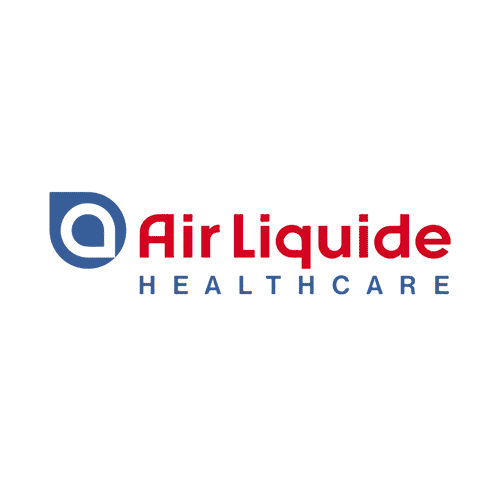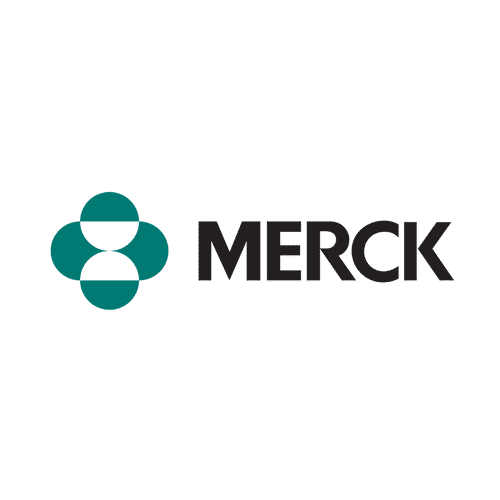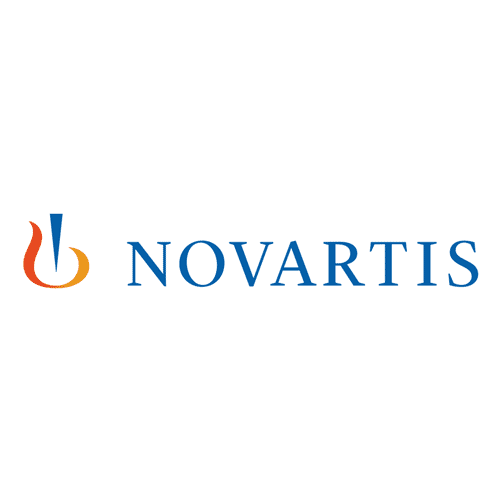
Patient experience

Optimize the experience of patients throughout their care pathways
Our specialized team supports healthcare players in their patient experience projects to better measure and manage the patient experience, to improve their experience along the care pathway, and to create new experiences or new solutions.
They trust us









The challenges related to patient experience
The concept of patient experience, developed in the 1970s, has gained momentum in recent years, as healthcare systems move from an approach “towards the patients” to an approach “with the patients” (notion of patient centricity), making the patient a true stakeholder, an actor in their own health.
This dimension opens up new perspectives for health providers, hospitals and health establishments, pharmaceutical laboratories, and, in general, for the transformation of health systems. We have identified 3 key challenges related to patient experience:
The development of patient experience makes it possible to approach issues impacting the quality and safety of care from a new angle, such as treatment compliance, reducing the risk of patients dropping out of care pathways, etc.
Indeed, strategies related to patient experience ensure that the patient:
- Has access to the right level of information throughout their pathway (on their pathology, on their treatment, on risky behaviors, etc.)
- Benefits from adapted and ergonomic care (reduction of patient burden, improvement of quality of life throughout the pathway)
- Has the possibility of being an actor in their own care pathway (patient engagement), enabling in particular a better endorsement of the patients to their pathway, and a better adherence to the treatment.
How to improve patient care and adherence to treatments based on patient experience? What examples of patient experience models can we draw inspiration from?
At a time when patients are increasingly eager to be “actors” in their own care pathway, improving the patient experience brings new tools to strengthen the patient’s commitment to their pathway, and provides healthcare facilities and laboratories with opportunities to innovate in order to differentiate themselves, bringing more value to patients.
- For healthcare establishments, this can involve thinking about the ergonomics of patient management, the place of the patient in the hospital of the future, etc.
- For laboratories, approaches based on the patient experience can make it possible, for example, to innovate in marketing as well as in medical strategies such as, for example, in how to conduct clinical studies (via educational content or digitized experiences).
How to set up an innovative and differentiating patient experience? What concrete solutions can develop the patient experience?
“Value-Based HealthCare” (VBHC) refers to models aimed at optimizing health systems by better managing the efficiency of expenditure via an incentive system that is based on monitoring quality or performance measures (unlike traditional models based on costs and time spent). This approach focuses in particular on performance in terms of patient outcomes. In this context, better measurement of the patient experience and better monitoring of their experiences would make it possible to lay the foundations for developing this type of model.
How to promote “value-based healthcare” by measuring and monitoring the patient experience? What are the expectations of VBHC models in terms of patient experience?
How we support you in your projects related to patient experience
With more than 25 years of consulting experience with major players in the healthcare sector, pharmaceutical companies, institutions and public authorities (hospitals, ARS, Ministry of Health, etc.), as well as innovative start-ups and SMEs, Alcimed is a partner of choice to support you in your innovation projects related to patient experience.
The diversity of our clients, the geographic fields we explore, and the types of projects we develop give us a global and in-depth understanding of challenges related to patient experience.
As a specialist in health innovation, our team supports you on different types of projects related to patient experience, around our 4 pillars of expertise:
- Imagine, by thinking about new patient experiences (digitalized experiences, hospital of the future, etc.) or the solutions to generate them.
- Investigate, by observing current experiences (via immersions in health structures, exchanges with patients and patient associations, market studies, etc.), using measurement tools such as “Patient-Reported Experience Measure” or the “Patient-Reported Outcome Measures” (PREMs and PROMs), and by mapping the points of improvement in each care pathway.
- Build, by developing or modifying current care pathways, or by creating innovative solutions to improve the patient experience and their interactions with healthcare providers, healthcare structures and laboratories (in the context of digitalized clinical studies, for example).
- Develop, by supporting you in mobilizing your internal teams, but also other stakeholders, for the deployment and implementation of these solutions.
What they say


"We did an analysis and research on how to revisit the patient support approach to be much more effective."
Cyril SAVY
Solution Lead Diabete Division
Examples of recent projects carried out for our clients in patient experience
Structuring a care pathway and developing the patient experience through the analysis of the needs of "tracer patients"
We helped a pharmaceutical player to structure a care pathway using the “patient tracer” methodology, which consists of retrospectively analyzing the pathway of a limited sample of patients, in order to diagnose areas for improvement and identify possible solutions for better care.
By analyzing the profiles of tracer patients and reconstructing their theoretical pathways, and carrying out an investigation with the key players in care (doctors, nurses, etc.), we were able to propose solutions to improve the patient experience, which we then developed in an action plan to improve the care pathway in this pathology based on the experience of the patients.
Construction of a Value Based Healthcare model in the field of diabetes based on patient experience measurement
Our client, a world leader in the pharmaceutical industry, wanted to accelerate the deployment of a program created to improve adherence to type II diabetes treatments, based on a better understanding of the patient experience, in a “Value Based Healthcare” approach.
Thanks to a field investigation with healthcare providers, we helped our client identify the indicators of value for the patients to be measured along the care pathway. We then recommended to our client a qualified list of potential partners in order to acquire the data management skills necessary to set up such a “value-based” model.
Development of a "Patient Support Program" to improve patient experience
We supported a pharmaceutical player in the development of a digital support offer for patients with Crohn’s disease. Our client wanted to understand what the major issues in the patient experience were and what levers could help address them, in order to develop their solution accordingly.
By identifying and prioritizing obstacles in the treatment process for this disease during a workshop with patients and by co-defining operational solutions to improve and develop the quality of life and well-being of patients, Alcimed enabled its client to develop a solid action plan to create a new Patient Support Program to improve the patient experience.
Mapping patients' emotions to improve their well-being and quality of life throughout the care pathway
Our team helped a leading pharmaceutical player to understand the emotions experienced by patients with a rare disease in order to develop a range of services to improve their well-being and quality of life.
After mapping patients’ emotions throughout their care pathways (from pre-diagnosis to palliative care) in several European countries, our team carried out a benchmark of services intended for patients, before selecting, during a workshop with our client’s teams, ideas for services to be put in place to respond to the emotional challenges identified with patients.
Understanding of the impact of a new treatment on the management of a rare genetic disease and on the patient journey
We worked with a pharmaceutical client to understand the impact of their new innovative treatment in France on the management of a rare genetic disease and on the patient journey.
We started by analyzing the impact of the treatment on disease management (symptom intensity, other treatments, frequency of visits to the doctor, etc.), patients’ lives (quality of life, life expectancy, etc.) and other potential evolutions in the care management, through desk research and interviews with patients. We then turned the outputs of our investigations ito concrete actions during several workshops with key internal stakeholders and a patient association.
This multi-stakeholder project enabled our client to connect with key stakeholders such as patient associations and understand the impact of their treatment in the management of this rare genetic disease. We also provided them with key factors to keep in mind to maximize the adherence and utilization of their treatment, from the perspective of patients.
Study of the concept of Patient Engagement for a pharmaceutical company
We supported a pharmaceutical company by performing a worldwide landscaping of the concept of Patient Engagement: who, what and why, with concrete examples from other pharmaceutical players.
To do so, we first conducted a literature in-depth analysis and targeted interviews with patients and pharmaceutical players. We were thus able to contextualize Patient Engagement: definition, origin, more mature therapeutic areas, etc. Then, we analyzed the players within patients communities (patient organizations, patient experts, etc.), their roles and influence on patient engagement. Finally, we identified the benefits, opportunities and potential levers for our client to work on patient engagement, along with concrete examples of actions taken by competing companies across the value chain.
The project output for our client was a comprehensive vision of Patient Engagement, why it is now a pillar of pharmaceutical business and how it will evolve in the future. We also helped our client promote the project internally, raise awareness on this concept’s value and get teams on board via an internal roadshow.
You have a project?
To go further
Healthcare
Patient experience: what are the 3 new roles for patients in our healthcare system?
The consumer-patient: to be informed and to choose Patients, who are increasingly informed through various sources of information, notably digital sources, are becoming more involved in the ...
Healthcare
Flexible care: what are its key success factors and its impact on patients’ quality of life?
What is flexible care? What is its impact on patient’s quality of life? What are the key success factors for its implementation?
Healthcare
Three unicorns that are disrupting the Healthcare sector with their patient experience
How do some unicorn companies transform the patient experience into healthcare? This transposition of the customer experience to the patient pathway is proving to be a real growth driver.
Founded in 1993, Alcimed is an innovation and new business consulting firm, specializing in innovation driven sectors: life sciences (healthcare, biotech, agrifood), energy, environment, mobility, chemicals, materials, cosmetics, aeronautics, space and defence.
Our purpose? Helping both private and public decision-makers explore and develop their uncharted territories: new technologies, new offers, new geographies, possible futures, and new ways to innovate.
Located across eight offices around the world (France, Europe, Singapore and the United States), our team is made up of 220 highly-qualified, multicultural and passionate explorers, with a blended science/technology and business culture.
Our dream? To build a team of 1,000 explorers, to design tomorrow’s world hand in hand with our clients.
“Patient experience” refers to all the events experienced by patients during their care pathway, including in particular interactions with doctors, nurses and more generally staff in hospitals, medical practices and any other healthcare establishments, but also, more broadly, their feelings and experiences when using drugs or medical devices (ease of use, adverse effects, adherence, etc.).
Patient experience is therefore closely linked to the concept of the care pathway, but through the prism of the patient’s perception of each stage of this pathway. This “experience” of the patients takes into account 3 main dimensions, in particular, according to WHO: 1) good communication, 2) respect and dignity, and 3) emotional support.
Patient experience and satisfaction can be measure by conducting interviews with patients, focus groups or on-site observational studies. Several tools can also be used, such as questionnaires: PREMs (Patient-reported experience measures), PROMs (Patient-reported outcomes measures) and patient satisfaction questionnaires.
In France, since 2016, the HAS has been deploying e-Satis, a national system for the continuous measurement of patients’ satisfaction and experience in healthcare establishments.




